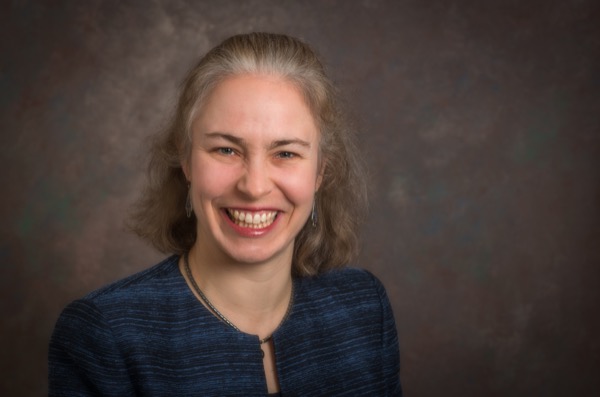
Global medical experience
Short-term international programs for medical students can have unintended consequences
9:57 a.m., Jan. 4, 2016--As American medical students increasingly want and expect to have international work experience, more and more short-term programs are being offered to give them that opportunity, according to Melissa Melby, assistant professor of anthropology at the University of Delaware.
The trouble is, she writes in a new article in Academic Medicine, that too many of these programs — called STEGH, or short-term experiences in global health — focus on the needs of the student trainees and not on what’s best for their patients or for overall health care in the countries they visit.
Research Stories
Chronic wounds
Prof. Heck's legacy
“Most students who participate in these programs genuinely want to help people,” Melby said. “But many of them may not be aware of the unintended consequences that can occur. In this article, we propose four core principles that we hope will help guide both the developers and the participants in STEGH programs.”
Melby, who specializes in the biological and medical aspects of anthropology, is the lead author of the article, written with colleagues who are medical doctors involved with global health care issues. She said her co-authors, who connected with her through the Delaware Health Sciences Alliance, of which UD is a founding partner, saw problems with many STEGH programs and sought her out for an anthropological perspective.
“STEGHs are often very short term, perhaps about three weeks or even less, and many times the participants are dropped into an area with very little preparation,” Melby said. “They don’t know the language, they don’t know the culture, and they’re jet-lagged. They’re well-intentioned, but this is often not the best way to help people.”
The authors of the paper list four principles that they say can be used to create better STEGH programs and to help students evaluate existing programs and make good choices about which to join. The principles are:
- Cultural humility. “I think there is a tendency to see these programs as bringing our advanced technology to people in need, but we need to realize that our approaches are not always the best in every context,” Melby said. “In fact, in health care, America doesn’t have the best outcomes in the world.” The authors advocate that STEGHs provide specialized cross-cultural training to participants before they travel and ensure that the students be aware of their own limitations even after such training.
- Bidirectional participatory relationships. Effective STEGHs will establish true collaborations and partnerships with local health care providers and communities, Melby said, focusing on what communities actually need before offering to provide services.
- Local capacity building. The authors note that unintended consequences often result when STEGHs come to an area, provide direct health care to some patients, and then leave. Problems might include a lack of follow-up care and a tendency for patients to delay seeing local providers while they wait for outside help to return, undermining the local health care system.
- Long-term sustainability. “We’d like to see these programs focus less on direct care and more on larger issues of public health,” Melby said. Those issues include poverty and inequality, public health infrastructure and human resources in low-income countries.
While STEGHs can provide students with important global and cross-cultural education, the authors say they believe a paradigm shift is needed to ensure that the programs benefit both the trainees and the communities they visit. And, Melby said, the proposed guidelines can apply beyond medical or pre-med students to include other study-abroad and global service-learning programs.
“We think these principles are relevant to a lot of student groups that do global work,” she said. “Most people’s hearts are in the right place, but there are often aspects to what they’re doing that they just don’t think about.”
The article, “Beyond Medical ‘Missions’ to Impact-Driven STEGHs: Ethical Principles to Optimize Community Benefit and Learner Experience,” is available online. It will be published in an upcoming print edition of Academic Medicine, the journal of the Association of American Medical Colleges.
The co-authors are Drs. Lawrence C. Loh, Jessica Evert, Christopher Prater, Henry Lin and Omar Khan, who also is an affiliated faculty member in UD’s College of Health Sciences.
Article by Ann Manser
Photo by Kathy F. Atkinson








